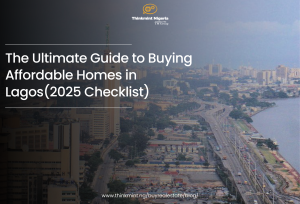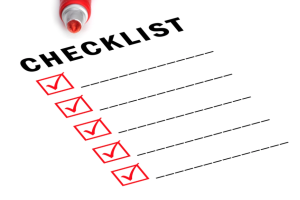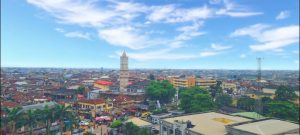
Lagos is Nigeria’s commercial heartbeat; it is the vibrant city of over 20 million people where demand for housing keeps rising.
Picture this: every morning, thousands of ambitious professionals, entrepreneurs, and families wake up in this megacity, all sharing one common dream, and that is owning a piece of Lagos real estate.
With rapid urbanisation transforming neighbourhoods overnight and economic opportunities drawing people from across West Africa, many assume owning a home here is out of reach.
The truth? Affordable homes in Lagos still exist if you know where to look, what to check, and how to buy smart.

The Lagos property market might seem intimidating at first glance, but beneath the surface of high-rise developments and luxury estates lies a thriving ecosystem of affordable housing opportunities waiting for informed buyers. Whether you’re a young professional taking your first step onto the property ladder, a growing family seeking more space, or a diaspora Nigerian looking to invest back home, this comprehensive guide is your roadmap to success.
Why Affordable Homes in Lagos Are in High Demand
Understanding the market forces driving demand helps you make smarter decisions as a buyer. The appetite for housing in Lagos isn’t just strong, it’s insatiable, and this demand creates both challenges and opportunities for budget-conscious buyers.
The demand for housing in Lagos keeps growing for three major reasons:
- Population growth: Thousands migrate to Lagos every year for work and business opportunities. Lagos State’s population grows by approximately 3.2% annually, adding roughly 600,000 new residents who need housing. This influx includes university graduates seeking career opportunities, business owners expanding their operations, and families relocating for better educational facilities for their children.
- Rising costs: Prime areas are expensive, but affordable homes in emerging neighbourhoods are attracting buyers. As traditional high-end areas like Victoria Island and Ikoyi become increasingly unaffordable for middle-class buyers, smart investors are discovering hidden gems in developing areas where today’s affordable purchase becomes tomorrow’s valuable asset.
What makes this particularly exciting is the emergence of a new class of informed buyers who understand that location isn’t just about current prestige, it’s about future potential. They’re looking beyond today’s infrastructure to tomorrow’s development plans, recognising that affordability doesn’t mean compromising on quality or investment value.
For anyone seeking budget-friendly homes in Lagos, this is the right time to explore opportunities.

Step-by-Step Guide to Buying Affordable Homes in Lagos
Buying a home in Lagos can be overwhelming, but following a structured plan makes it easier. Think of this process as your personal GPS through the complex terrain of Lagos real estate
Step 1: Define your budget – Decide how much you can afford and explore financing options like a mortgage, cooperative funding, or instalment payments.
Start by conducting an honest assessment of your financial situation. Calculate not just the purchase price, but also legal fees (typically 5-7% of property value), inspection costs, moving expenses, and a contingency fund for unexpected costs. Remember, financial institutions generally recommend that your housing costs shouldn’t exceed 30% of your monthly income.
Step 2: Choose your location wisely – Look at budget-friendly areas to buy homes in Lagos, such as Ikorodu, Epe, or Abule Egba. Location selection requires balancing current affordability with future growth potential. Consider factors like proximity to your workplace, access to quality schools if you have children, transportation links, and planned infrastructure projects that could boost property values. The key is finding areas that are affordable today but positioned for appreciation tomorrow.
Step 3: Work with trusted professionals – Only use licensed agents and credible developers. Your real estate agent should be your advocate and advisor, not just a salesperson. Look for agents who demonstrate deep knowledge of your target areas, provide honest feedback about properties (including pointing out potential issues), and have verifiable track records of successful transactions.
Similarly, when dealing with developers, research their previous projects, visit completed developments, and speak with existing residents about their experiences.
Step 4: Verify property documents – Titles like C of O, Governor’s Consent, or Gazette are crucial. This step cannot be rushed or skipped. Document verification is your insurance policy against future legal troubles. Engage a qualified real estate lawyer to review all paperwork, conduct searches at relevant government offices, and ensure that the property has a clear, marketable title. Remember, a property with questionable documentation may seem like a bargain, but the long-term costs and risks far outweigh any initial savings.
Step 5: Secure a payment plan and close the deal – Spread payments if needed, but always keep receipts and signed agreements. Negotiate terms that align with your cash flow while protecting your interests. Ensure all agreements are in writing, include clear timelines and penalties for delays, and specify exactly what is included in the purchase price. Maintain detailed records of all payments and communications throughout the process.
By following this step-by-step guide to buying affordable homes in Lagos, you minimize risks and maximize value. Each step serves as a checkpoint, ensuring you’re making informed decisions based on thorough research rather than emotions or pressure from sellers.
Essential Checklist for Buying a House in Lagos, Nigeria

Every smart homebuyer should tick these boxes before signing on the dotted line. This checklist represents the distilled wisdom of countless successful property purchases and, unfortunately, the lessons learned from deals gone wrong.
- Confirm land or property title (C of O, Governor’s Consent, Gazette) – Don’t accept photocopies or promises that “the documents are being processed.” Original documents should be physically inspected, and their authenticity verified through official channels.
- Inspect the property physically — don’t rely on pictures – Schedule multiple visits at different times of day and week. What looks perfect in bright afternoon sunlight might reveal drainage issues during the rainy season, and a quiet weekend visit might not reflect weekday traffic noise or commercial activity.
- Check infrastructure (roads, drainage, power supply) – Assess not just current conditions but also long-term sustainability. Are roads prone to flooding? Is the power supply stable, or will you need to invest in alternative energy sources? How reliable is the water supply, and what backup options exist?
- Compare prices within the area to avoid overpaying – Research recent sales of similar properties within a 2-3 kilometer radius. Online platforms, local agents, and residents can provide valuable pricing insights. Remember that significant price variations usually indicate differences in documentation status, building quality, or location desirability.
- Ensure the developer or seller has a strong reputation – Investigate their track record through multiple sources. Visit other properties they’ve developed, speak with previous buyers, check for any legal disputes or unfinished projects, and verify their professional credentials and business registration.
This checklist for buying a house in Lagos, Nigeria, will help you avoid costly mistakes. Consider it your final defence against common pitfalls that trap unprepared buyers. Taking time to complete each item thoroughly might delay your purchase by a few weeks, but it could save you years of legal battles or financial losses.
How Much Does It Cost to Buy a Home in Lagos?
Understanding pricing dynamics helps you budget realistically and negotiate effectively. The Lagos property market operates on multiple tiers, with significant price variations based on location, documentation status, building quality, and market positioning.
The cost of buying a 2-bedroom house in Lagos depends on location and property type:

Mainland (Ikorodu, Abule Egba, Egbeda) – ₦12M to ₦25M – These areas offer the best entry points for first-time buyers and investors seeking rental income potential. Properties in this range typically feature basic finishes, standard infrastructure, and may require some personal touches to meet your specific needs. However, they provide solid foundations for homeownership and often appreciate steadily as surrounding areas develop.
- Island (Ajah, Lekki, Ibeju-Lekki) – ₦25M to ₦70M depending on finishing and proximity – Island properties command premium prices due to perceived prestige, better infrastructure, and proximity to business districts. Within this range, properties closer to the Lekki-Epe expressway or established residential estates command higher prices, while those in developing areas offer better value for money.
- Emerging zones (Epe, Badagry, Agbowa) – ₦8M to ₦20M – These represent the frontier of Lagos expansion, where early investors can secure properties at today’s low prices while benefiting from tomorrow’s infrastructure development. Properties in these areas often offer larger land sizes and may include additional buildings or development potential.
Affordable Housing in Lekki – Is It Possible?
The Lekki corridor remains one of Lagos’ most desirable areas, but affordability varies significantly by specific location. Understanding the different sub-markets within Lekki helps you find opportunities that match your budget while still benefiting from the area’s overall growth trajectory.
Many ask: “Is affordable housing in Lekki, Nigeria, still possible?” The answer is yes — but not in Lekki Phase 1. The original Lekki development has matured into a premium residential area where property prices reflect its established infrastructure, proximity to business districts, and social amenities.
Instead, look at:
- Sangotedo – Growing residential hub with gated estates. Sangotedo offers a compromise between Lekki’s prestige and affordability constraints. The area features modern residential developments with security features, recreational amenities, and professional property management, but at prices significantly lower than central Lekki locations. Its position along major transportation routes ensures continued growth and appreciation potential. Check this 3-bedroom apartment along Sangotedo Axis with a 6-month payment plan and a mortgage. Check it out here:
- Awoyaya & Abijo – Affordable land and housing, close to Lekki-Epe expressway. These areas represent the expanding frontier of Lekki development, where buyers can secure properties at today’s affordable prices while positioned to benefit from future infrastructure expansion. The proximity to the Lekki-Epe expressway ensures connectivity, while current affordability levels attract diverse residential communities.
- Ibeju-Lekki – A top hotspot with long-term appreciation potential. Ibeju-Lekki sits at the centre of Lagos’ most ambitious development plans, including the new international airport, deep seaport, and massive industrial complexes. While the current infrastructure remains developing, the confirmed investment pipeline makes it attractive for buyers who can afford to wait for full development maturation.
These areas offer lower entry points while still benefiting from Lekki’s infrastructure growth. When considering any Lekki-corridor property, evaluate both current amenities and confirmed future developments. The most successful Lekki investments have been made by buyers who recognised development potential before it became obvious to the broader market.
FAQs on Buying Affordable Homes in Lagos
Q: What is the average cost of a 2-bedroom house in Lagos?
Between ₦12M and ₦25M on the mainland; ₦25M and above on the island. However, these ranges can vary significantly based on factors like building age, finishing quality, documentation status, and specific neighbourhood desirability. Properties at the lower end of these ranges might require renovation or updates, while those at higher price points typically feature modern amenities and superior locations.
Q: Which areas have the cheapest homes in Lagos?
Ikorodu, Epe, Badagry, and Abule Egba are among the most budget-friendly areas to buy homes in Lagos. These areas offer the best combination of affordability and growth potential, though buyers should evaluate each location based on their specific needs regarding commute times, family amenities, and investment objectives.
Q: Can diaspora Nigerians buy affordable homes in Lagos?
Yes, through virtual inspections and diaspora-friendly payment plans. Many developers now offer comprehensive virtual property tours, secure international payment systems, and property management services that address common concerns of overseas buyers. Some government programs also provide specific benefits for diaspora investors.
Q: What documents should I check before buying?
A:C of O, Governor’s Consent, or Gazette, verified by a lawyer. Additionally, ensure you review survey plans, building permits, environmental impact assessments (for larger developments), and any relevant community agreements or estate regulations. Each document serves a specific purpose in establishing legal ownership and property rights.
Q: How long does the buying process typically take?
With proper preparation and clear documentation, the process can take 4-8 weeks from offer acceptance to final closing. However, delays can occur due to documentation issues, financing arrangements, or government approval processes. Planning for potential delays helps manage expectations and reduces stress.
Q: What financing options are available for first-time buyers?
Options include traditional mortgages from banks, cooperative society funding, developer payment plans, and some government-backed financing schemes. Each option has different requirements, interest rates, and payment structures, so comparing multiple alternatives helps identify the best fit for your situation.
Conclusion: Take the Smart Step Towards Affordable Homeownership
Owning a home in Lagos doesn’t have to remain a dream. The city’s dynamic growth, combined with increasing government support and expanding financing options, creates unprecedented opportunities for informed buyers who approach the market strategically.
By following the step-by-step guide, using the checklist, and focusing on budget-friendly neighborhoods, you can secure a home that fits your budget and grows in value. Success in Lagos real estate comes not from finding the cheapest property, but from identifying the best value properties that offer quality, security, growth potential, and alignment with your personal and financial goals.
Remember that homeownership is a journey, not a destination. Your first property might not be your forever home, but it establishes your foundation in Lagos’ property market and begins building wealth through real estate equity. As your circumstances change and improve, you can leverage your initial investment to upgrade or expand your property portfolio.
The best time to buy a home in Lagos was yesterday. The next best time is now. Market conditions, government policies, and infrastructure development create windows of opportunity that don’t remain open indefinitely. By educating yourself, preparing thoroughly, and acting decisively when you find the right opportunity, you can join the growing community of proud Lagos homeowners who have turned their housing dreams into reality.
For affordable homes with as low as a 10% entry fee and flexible payment plans, you can browse our listings at https://www.thinkmint.ng/buyrealestate/